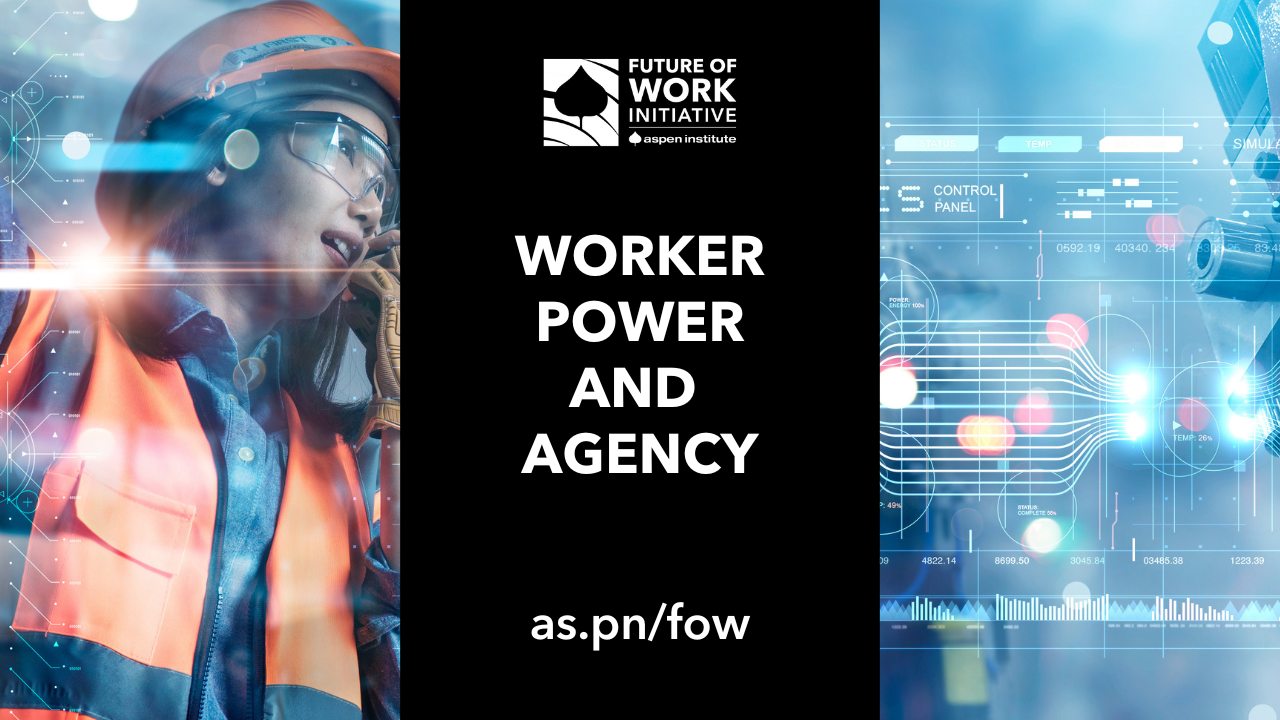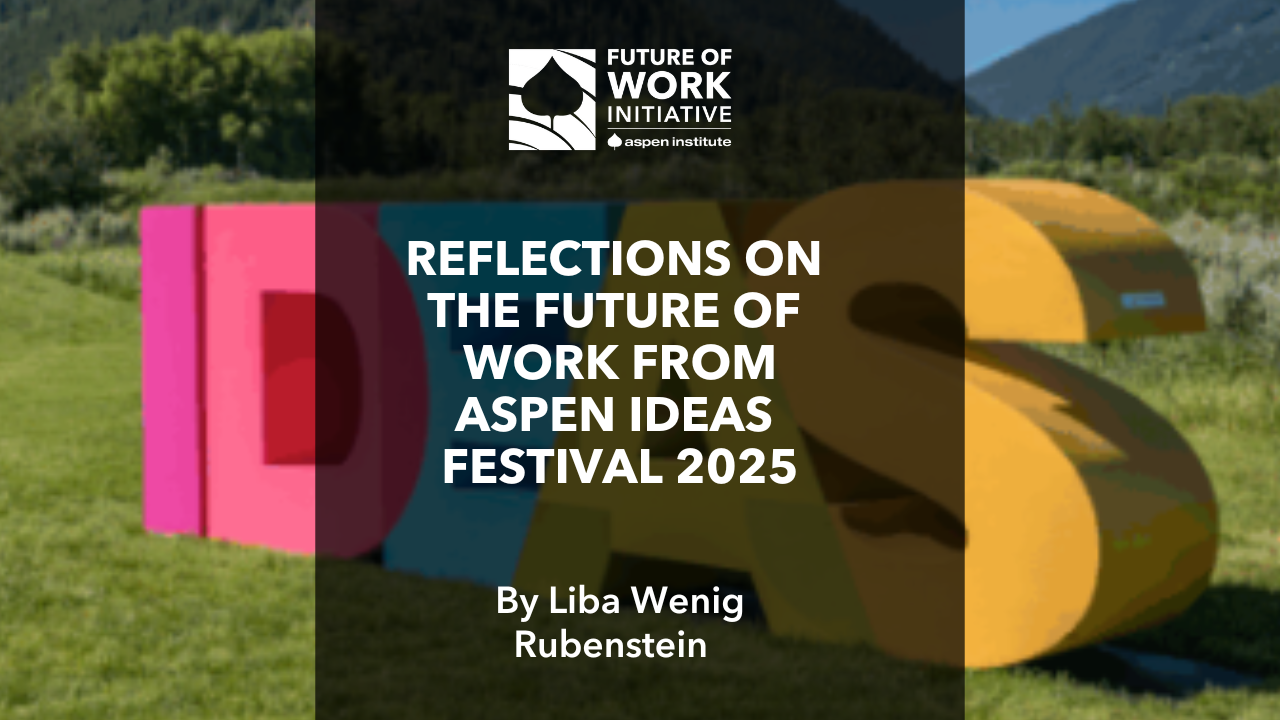The Human in the Machine — at Work

Liba Wenig Rubenstein
Director
At this summer’s Aspen Ideas Festival, I had the great pleasure of facilitating a conversation with four Ideas Fest Fellows — young leaders in the fields of media, philanthropy, and economic policy — about their view of the future of work.
When it comes to technology, they at once celebrated and bemoaned the ways tech has already redefined the nature of work and the expectations they and their peers have for what role work will or should play in their lives. The advent of the digital-social-creator-app-based-sharing economy coincided with their coming of age — tech which both hastened and helped cope with a broken social contract about work in America. These leaders and many of their peers have managed to leverage tech to enable independence and flexibility in their careers, but security and sustainability often remain fleeting. Now, the rise of generative and agentic AI could exacerbate this trade-off — and put good, family-sustaining jobs out of the reach of ever more young people.
In his contribution to our “Back to the Future of Work” series, Professor Arun Sundararajan from NYU’s Stern School of Business reminds us that “human dignity is closely tied to an individual’s ability to claim ownership over the ‘fruits of their labor.’” But what of a worker’s labor belongs to them if that labor can now be commodified in the form of productivity data or fodder for generative AI systems, asks Microsoft’s Mary Gray. And, in an interview with EOP Executive Director Maureen Conway, McKinsey’s Asutosh Padhi balances excitement about AI’s potential to increase labor productivity with an emphasis on maintaining human values such as mastery, autonomy, and purpose in the workplace.
While the White House’s recently released AI Action Plan provides little reassurance that the interests of working people are being taken as seriously as those of the few AI labs that dominate this emerging market (and the employers that would welcome a lower cost, less human workforce), we wanted to revisit these voices from our series to remind us of the critical questions we must continue to ask if we are to ensure that our evolving technological landscape will benefit all workers, not just a privileged few.
The Potential for Scaling Technology: Increased Labor Productivity…If We Get It Right — Asutosh Padhi
In this conversation with Economic Opportunities Program Executive Director Maureen Conway, Asutosh Padhi, a senior partner and global leader of firm strategy at McKinsey & Co., explores the massive potential to boost labor productivity by scaling the use of technology and generative AI — so long as we align the use of tech in the workplace with core human values. Click here to watch.
The Future of Workers and AI: Control Over Workplace Activity Data is Key — Mary Gray
At a time when regulation and labor protections seem more fragile than ever, Mary Gray, senior principal researcher with Microsoft Research, makes the case that workers must have the ability to use their own workplace activity data in service of their own needs, rather than it being used against them for surveillance. Click here to read more.
Artificial Intelligence, Human Intellectual Autonomy and the Future of Work — Arun Sundararajan
The AI-fueled workforce transition is shifting the boundaries of our intellectual autonomy. How can we maintain that autonomy while creating equitable access to economic opportunity in the future of work? Arun Sundararajan — the Harold Price Professor of Entrepreneurship and director of the Fubon Center for Technology Business and Innovation at NYU’s Stern School of Business — explores this and cautions that we must design and build an education system that allows workers to transition to the future of work with dignity. Click here to read more.
About This Series
This post is part of a series called “Back to the ‘Future of Work’: Revisiting the Past and Shaping the Future,” curated by the Aspen Institute’s Future of Work Initiative. For this series, we gather insights from labor, business, academia, philanthropy, and think tanks to take stock of the past decade and attempt to divine what the next one has in store. As the future is yet unwritten, let’s figure out what it takes to build a better future of work.
About the Economic Opportunities Program
The Aspen Institute Economic Opportunities Program advances strategies, policies, and ideas to help low- and moderate-income people thrive in a changing economy.
Join Our Mailing List
To receive occasional emails about our work — including new publications, commentary, events, fellowships, and more — join our mailing list.
Connect on Social Media
For news and updates every day, connect with us on the social media platform of your choice.








